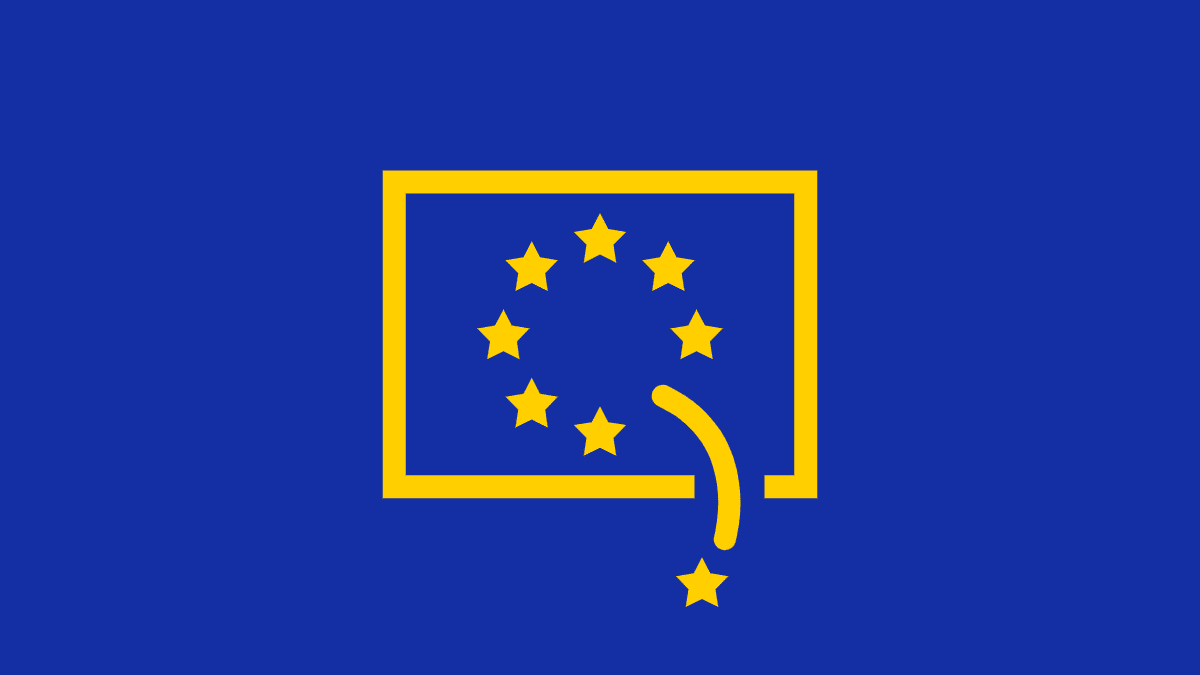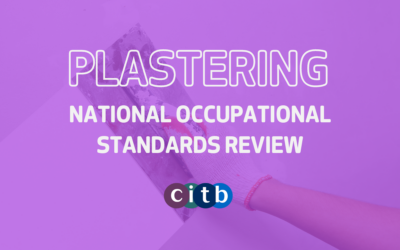FIS Brexit Toolkit
On 23 June 2016, a referendum took place to determine the future of the UK’s European Union membership. 51.9% of voters voted in favour to leave the EU. The Prime Minister has stated he wants the UK’s exit from the EU to be beneficial to British businesses, allowing the maximum freedom to trade and operation in the single market, whilst still maintaining a fully independent country able to make its own decisions

Brexit News
FIS Brexit Toolkit
FIS will endevour to keep the Latest News section below concise and up to date and develop guidance with our colleagues in Government and across the supply chain. If you have any Brexit questions, don’t hesitate to email on info@thefis.org or call our helpine to be connected to the best member of our team or external advisor to support you. If we can’t answer it, well do our best to hunt down the best possible answer for you.
Movement of Goods - UKCA and CE Marking from January 2023
With the Brexit Deal there are changes to the requirements around product and compliance with the Construction Products Regulation (CPR). The EU will still require goods manufactured in the UK to be CE Marked and a new UK domestic regime will cover products placed in the UK. The technical requirements for these goods will remain broadly the same on 1 January 2021 as they are now, however, we will see the introduction of the UKCA marking and a system of third-party conformity assessment by UK-recognised approved bodies, in place of the current EU system of notified bodies. A separate mark exists also to cover the special arrangements for Northern Ireland. The UKCA and UKNI marks will become mandatory from 1 January 2023.
FIS guidance on Conformity Marking
Latest guidance on UKCA marking can be read in full here: UKCA Implementation Guidance (November 2021).
The Construction Leadership Council Regulatory Reform working group remains concerned about the following areas:
- Impending date for CA mark CE Mark transition to end versus state of readiness within the sector
- Can current UK Approved bodies and testing houses cope with all their retesting and certification work needed to implement the CA Mark
- When can historical data be used and when cannot it be used
- Potentially limiting and confusion in protocols for sub-contracting testing
- How are change can be implemented in existing long term contracts
- The definition of batches when it comes to transition dates
- Clarity over numerous issues related to the Northern Ireland protocol
- What happens with components of a CA marked products that could be CE marked and what happens when a component needs replacement
- The rules related to rebadging be used and how stock needs to be rebadged
- Whether and when will EU provide clearance for EOTA guidance to be used
- Clarity on whether the Secretary of State has to publish European Assessment Documents and guidance to support the UK Approved Bodies in issuing UKCA marking
To highlight the extent of these concerns the CLC has written to the Secretary of State – you can read the letter here.
The Construction Products Association (CPA) is supporting FIS Members (through our membership of the CPA in tracking outstanding issues, this excellent register helps to keep track of where negotiations and guidance are creating challenges)
Movement of Goods - Placement of Products
Latest guidance on UKCA marking can be read in full here: UKCA Implementation Guidance (November 2021)
Movement of Goods - Northern Ireland
EU exit and the Northern Ireland Protocol
The UK left the European Union (EU) on the 31 January 2020. A transition period was in place until 31 December 2020 and now a new relationship with the EU is beginning. This includes the Northern Ireland Protocol.
The NI Protocol
During negotiations the EU and UK agreed a Northern Ireland Protocol that there would be no new checks on goods crossing the border between NI and the Republic of Ireland (ROI).
The protocol aims to:
- avoid a hard border between NI and the ROI
- make sure of the integrity of the EU’s single market for goods
- facilitate unfettered access for NI goods to the GB market, and the inclusion of NI goods in free trade agreements between the UK and third countries
As a result of the protocol, NI has in effect remained in the EU’s single market for goods (England, Scotland and Wales have left the EU’s single market for goods). The aim is to allow goods to flow to and from NI to the ROI and the rest of the EU as they did while the UK was a member of the EU, without customs checks, tariffs or new paperwork.
If trading with or from Northern Ireland there are a number of important considerations.
- Register for a free XI EORI number here. If your business moves goods to or from NI, you will need an EORI number that starts with XI.
- Check if you need to declare goods you bring into or take out of the UK here. The Trader Support Service can help.
- Decide how you will account for VAT on goods moving between Great Britain and Northern Ireland. More guidance.
- Check your goods regulation.If you are placing manufacturedgoods on the market in NI you need to check whether your goods comply with EU regulations.
- Ensure that the goods are correctly marked
Guidance for UK businesses moving goods into, out of, or through Northern Ireland
Movement of Goods - Rules of Origin
Rules of Origin determine the economic nationality of a good under a Free Trade Agreement, it is important to remember that the new Deal with the European Union covers free trade on goods manufacturered in the UK or EU respectively, it does not cover goods that are traded through the UK to the EU or visa versa.
Movement of Goods - Declarations, Taxes and Tariffs
Businesses in Europe will need to make customs declarations when moving goods between the UK and the EU. If European businesses have not completed the right customs processes their goods will not be able to cross the EU border.
The Deal means less friction, but not frictionless trade. New paperwork requirements and changes to the VAT rules apply if you are importing or exporting products and, subject of rules of origin, tarriffs may apply.
HMRC have provided answers to some of the most frequently asked questions on the new trade rules.
- Customs processes are complicated. Who can help me complete them?
Most traders find that they need specialist support to help with importing from or exporting to the EU. For instance, you might decide to use a customs intermediary.
A customs intermediary is someone who makes customs declarations for you or your business. This could be:
- a freight forwarder – a company that helps their clients move cargo globally, including supporting the customs process
- a customs agent or broker – these make sure your goods clear through customs.
If you decide to use an intermediary, make sure you approach them as soon as possible, as there is high demand for these services. You can find a list of businesses that can help on GOV.UK.
There are still specific actions you will need to take if you get an intermediary to help you with your customs declarations. You will:
- be responsible for paying any taxes or duties owed;
- be responsible for providing details about your transactions to your chosen intermediary;
- need to apply for an Economic Operator Registration and Identification (EORI) number (if you don’t already have one). An intermediary can’t apply for an EORI on your behalf and they will need this to complete your customs declarations. You can register for free on GOV.UK. It takes 5 to 10 minutes to apply and you will normally receive it in under a week.
For more information, you can:
- watch these short films about how a customs agent or intermediary can help you and getting someone to deal with customs for you – how freight forwarders can help.
- My business is located in the United Kingdom and I export goods to EU customers, can you explain how I should account for VAT?
If you sell, send or transfer goods out of the UK you do not normally need to charge VAT on them in the UK. You can zero-rate most exports from:
- Great Britain to a destination outside the UK
- Northern Ireland to a destination outside the UK and EU.
If you incorrectly charge UK VAT on exports of goods, your customers may also have to pay VAT in the country where the goods are imported.
Different rules may apply in different countries. Therefore, it’s important that you understand the import VAT rules of each EU country that you sell to.
You can find out more about exports, sending goods abroad and charging VAT on GOV.UK.
- I send goods from the United Kingdom to my customers in the EU, has anything changed about how I should account for VAT?
Yes. Previously, before the end of the transition period:
- VAT was due on the goods that you sold to your EU customers. If your EU customer was not VAT registered themselves (for example, because they were a private individual) you accounted for UK VAT in the UK. If your sales to EU customers breached an annual distance selling threshold you had to register for VAT in that EU Member State and account for EU VAT in that country.
- If your EU customer was registered for VAT in their own country your business zero-rated the sale as a ‘dispatch’ and your EU customer accounted for the VAT as an ‘acquisition’ in their own country.
Now, following the end of the transition period:
- if you are a business subject to the Northern Ireland protocol, the above rules will still apply.
- if you are a business moving goods from Great Britain to the EU, your goods should be zero-rated exports from the UK and import VAT will be due to be collected from the EU recipient at import into the EU and subject to EU rules.
- different rules may apply in different countries – therefore, it’s important that you understand the import VAT rules of each EU country that you sell to.
You can find more information and guidance about the conditions for zero-rating VAT on the goods you export, and what you should do when you export goods in specific circumstances on GOV.UK
Further information
HMRC Newsletter to support businesses (originally published 3rd Jan, but latest update 19th Feb)
There are additional safeguards and hence rules and paperwork in place if you need to move goods between Northern Ireland and Great Britain and visa versa. To assist here the Trader Support Service has been established.
Movement of People - Immigration from 2021
The table below explains how points will be allocated for anyone on the Skilled Visa route will work from 1st January 2021, including mandatory and tradeable points. An individual will need to get to 70 points.
| Characteristics | Mandatory/Tradeable | Points |
| Mandatory Requirement | ||
| Offer of job by approved sponsor | Mandatory | 20 |
| Job at appropriate skill level (RFQ3+) | Mandatory | 20 |
| Speaks English at required level | Mandatory | 10 |
| Points for Salary | ||
| Salary of £20,480 to £23,039 or at least 80% of the going rate for the profession (whichever is higher) | Tradeable | 0 |
| Salary of £23,040 to £25,599 or at least 90% of the going rate for the profession (whichever is higher) | Tradeable | 10 |
| Salary of £25,600 or above or at least the going rate for the profession (whichever is higher) | Tradeable | 20 |
| Additional points | ||
| Job in a shortage occupation as designated by the Migration Advisory Committee | Tradeable | 20 |
| Education qualification: PhD in a subject relevant to the job | Tradeable | 10 |
| Education qualification: PhD in a STEM subject relevant to the job | Tradeable | 20 |
As it stands, no construction occupations are listed on the shortage occupation list. Plastering and Carpentry and Joinery are examples of trades recognised on the Skilled Worker list as satisfying the RFQ3+ requirement for skill level of role, but many trades within the Finishes and Interiors Sector (e.g. Drylining, Ceiling Fixing, Partitions Installer) are classified under the Standard Occupational Code 8149 and as a result not deemed to be at an RFQ3+ level making it very difficult to attract new labour from overseas beyond 1st January 2021.
EU nationals residing in the UK prior to 31st December 2020 will be entitled to apply for Settled or Pre-Settled Status and will be exempt from these rules. Irish Citizens will also be exempt from the points based system. Responsibility will be on the employer to confirm the status of the worker.
Preparations
There are effectively two important dates to consider:
1st January 2021 – Individuals will need to be in the UK before this date to get settled or pre-settled status the individual (regardless of how they are employed). Anybody arriving from the 1st Jan will need to get 70 points to settle here and visa will be linked to employment through the sponsorship process..
1st July 2021 – Individuals who were here before the 31st December have til to this date to apply for residency under the settlement scheme.
In the period Jan to June 2021, employers don’t need to check settled or pre-settled status, just right to work (e.g. passport from EU will suffice), as long as you do this you get a statutory exemption from any right to work issues.
From June you will need to check that the individual has settled or pre-settled status. The onus is on you regardless of whether they are employed or sub-contract labour to ensure people working for you have a right to work. As long as an individual has settled or pre-settled status there is no cost implication to the employer. If they are qualifying through the points based system a visa is required and there are cost implications. You will need to register as a sponsor organisation to be able to employ new workers (i.e. those who do not have settler or pre-settled status) from the EU in the future.
FIS recommends contacting overseas workers to understand their intentions and pre-empt any problems. This will also support you in communicating the importance of applying for settled or pre-settled status (we strongly recommend encouraging your workforce to apply for settled or pre-settled status under the EU Settlement Scheme, it is a simple process and can be completed on a mobile phone – more details here).
A set of potential questions is provided below to support this activity:
Covid-19 Holiday Impact Questionnaire
|
You may wish to consider becoming a sponsor organsiation, to ensure you can continue to employ non UK citizens arriving after the 31st December 2020. Further guidance on this process has been provided by the Construction Leadership Council (CLC) here.
Remember you do not need to be a sponsor to recruit Irish citizens or anyone from the resident labour market with an existing right to work in the UK. This includes EU citizens with settled or pre-settled status, and non-EU citizens with indefinite leave to remain in the UK. You can rely on a third party to manage the sponsorship arrangements, but ultimately thiswill not abdicate all of your responsibilties.
Guidance around Self-employment remains unclear, but there are processes that support the sponsorship of sub-contracted workers (arriving after the 31st December 2020), however, these must be sponsored and guidance currently states. “Where a worker is not your direct employee, we will look closely at the arrangement to make sure you can fulfil your sponsor duties and we will take action against you if we find you are not.”
Further information
- Access the CLC Guidance on movement of labour is here.
- A full report from the FIS on immigration concerns in the sector is available here
- For further information on Managing Modern Slavery in Construction click here
- For a detailed explanation of the points based system click here
- To book on our Preparing for Brexit: Movement of People Workshop click here
Advice on Travelling to Europe for work
A short explainer document has been produced to help you understand the new rules that are in place for business travel to Europe for work. These rules apply to you if you are travelling for work in Europe regardless of whether you are attending a conference or providing services.
Are your contracts ready for the impact of any transition turmoil?
Concerns have been raised about the potential for delays caused by a no deal Brexit leading to the triggering of penalty clauses within construction contracts and inflationary pressure linked to logistical challenges and currency. The impact on firms within the supply chain, in particular SMEs could be significant. The position of the Construction Leadership Council is that invoking these clauses should be a last resort, and that clients and firms in the supply chain should adopt an open and collaborative approach to identifying and planning to mitigate these risks before they materialise. however construction remains a contract led sector. We would encourage early discussions between clients and firms, and for all those involved in the supply chain to both understand the impact and demonstrate flexibility, seeking to ensure that risks are managed by those organisations best placed to do this.
In the short term, firms should take steps to:
- understand their obligations and liabilities in relation to delays included within the terms and conditions of contracts they are party to or considering signing;
- identify the key risks – whether to their workforce, or ability to secure sufficient products or materials to complete the project or work package – and ensure that planning to mitigate these is underway;
- identify whether there are contract terms and conditions linked to the performance of other firms in the supply chain or the delivery of products or materials by suppliers;
- review insurance policies and the cover these provide, and if necessary, notify your insurer of anticipated delays or potential claims;
- identify whether there specific Brexit-related project plans or terms and conditions in relation to the project that are not included in your contract; and
- consider including clauses relating to Brexit and potential delays within contracts that are under negotiation.
This is a complex area, due to the wide range of contractual practices within both the public and private sectors.
More detailed guidance has been prepared by BuildUK for our community here.
Resources for Contractors from BuildUK
Members of the FIS have access to support from BuildUK through our membership.
Build UK have set up a dedicated website for contractors, Are You Ready for Brexit?
Resources from the Construction Products Association
The CPA has been monitoring the impact of Brexit on its members and the wider construction industry, this includes both the economic impact and the implications of Brexit on regulatory and policy frameworks and leading some of the key industry groups on standards/regulations and trade issues through Construction Leadership Council.
List of Brexit activities from the Construction Leadership Council
Additional industry resource
Creating a Stronger Construction Industry Post-Brexit – April 2017
The UK transition - tool produced by UK Government
Brexit transition helplines: A list of government helplines organised by theme and key actions for businesses has been published. To view this, click here.
There are new rules for businesses doing business with the EU from 1 January, and you need to take action now. To help you, a helpline has been set up. For English businesses, the Business Support Helpline can help you identify the actions you need to take. Similar helplines are available for Scotland, Northern Ireland and Wales.
For more information for:
businesses in England, call 0800 998 1098
businesses in Scotland, call 0300 303 0660
businesses in Wales, call 0300 060 3000
businesses in Northern Ireland, call 0800 181 4422.
UK Goverment has provided the UK Transition Tool that enables you to complete a short questionnaire and check the new rules as they will apply to you.
You can access the website The UK Transition here.
A useful presentation for SMEs produced by the department of business is available here (BEIS SME Pack)
Archive Brexit Alerts relevant to FIS Members
FIS Brexit Risk Register
We keep hearing that businesses should be planning, but with the possible outcomes shrouded in so much uncertainty it is difficult. FIS has created a checklist (accessible below) for its members to help to create a structured approach to fathoming how Brexit may impact on their operation. It is not exhaustive, but starts to create a framework for thought. Click here to download



